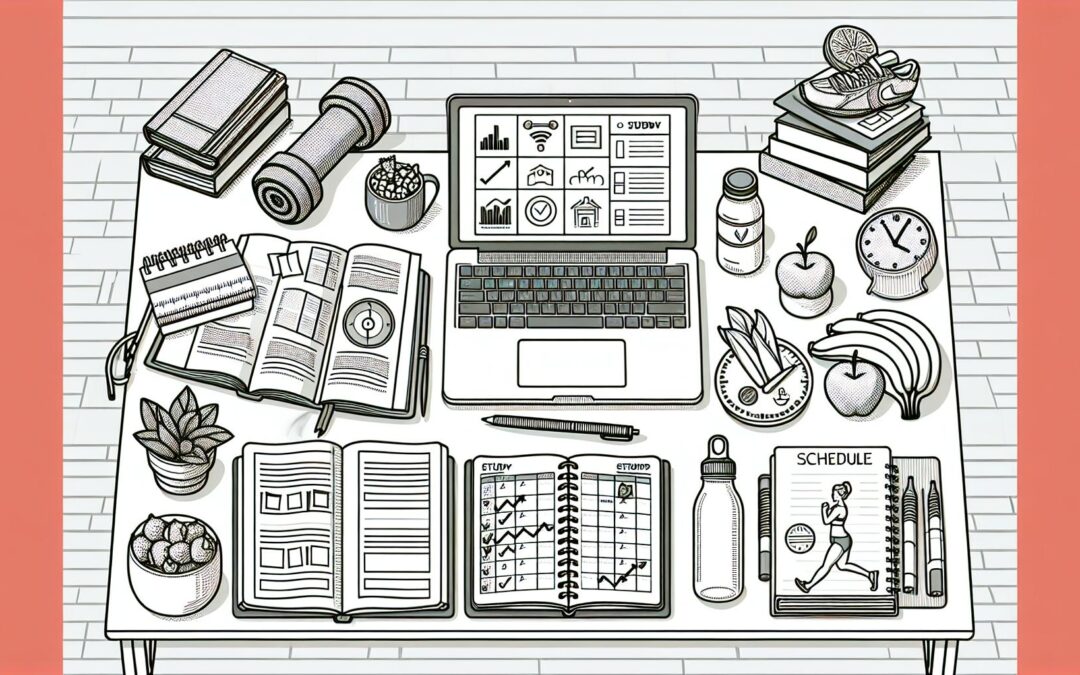We’ve all been there. That sinking feeling when you realize you’ve bombed a big exam. It’s tough, isn’t it? But remember, failure isn’t the end of the road. It’s just a detour on your journey to success.
Coping with Failure
When you’re sat there, staring at a fail grade, your mind might wander into thinking that it’s the end of the world. But let’s hit the pause button right there. Remember, failure is a detour, not a dead-end.
Instead of spiraling into negativity, channel these feelings into formulating a productive comeback strategy. Here’s a few practical pointers.
Acceptance
In psychology, acceptance means recognizing reality as it is without trying to resist or control it. The moment you accept your failure, you’re making the first critical step toward overcoming it. This acceptance is not a sign of defeat. Instead, it helps you shun negativity and fosters a conducive environment for growth.
Reflection
Look at the daunting F letter as your greatest teacher. Analyze your exam. What were your weakest areas? Seek out the patterns in your mistakes – be it calculation errors in Math or incorrect assumptions in Physics. This deep-dive can provide key insights, helping you prepare more efficiently for your retake.
Reach Out
Don’t bottle up your feelings. Reach out to your teachers, friends or family for support. You’d be surprised at how much a fresh perspective can help you see things in a new light.
Seek Constructive Feedback
Lean on your teachers or tutors for feedback. They may pinpoint specific areas where you’re lagging.
Setting New Goals
Now’s the time to chalk out smarter goals. For example:
- Improve time management: If pacing through sections was an issue, allocate fixed timings for different sections next time.
- Enhance knowledge retention: If forgetfulness was the culprit, try innovative methods like using flashcards, mind maps or mnemonic devices.
From these points, it’s clear that coping with failure doesn’t mean wallowing in self-pity. It’s about harnessing this setback as a launchpad for a stronger comeback. Make failure part of your narrative, the springboard from which you bounce back to excel and succeed. And remember, keep moving forward and never stop learning.
Learning from Mistakes

Who says making mistakes is all bad? If you’ve just failed a big exam, don’t fret. Believe it or not, mistakes are one of the best teachers. Let’s look into why and how you can effectively learn from them.
Mistakes, especially those that result in failure, can be harsh. It’s normal to feel down when you don’t meet your expectations. But here’s fact number one, experiencing failure doesn’t mean you’re a failure. That’s where the beauty of mistakes comes in. They’re temporary setbacks, not permanent flaws.
So how can you go about learning from your mistakes? Here are some strategies:
- Acceptance: It’s first and foremost. Acknowledge your misstep but don’t beat yourself up. This forms the foundation for your learning process.
- Analysis: Reflect on what went wrong. Where did your preparation lag? What topics did you find difficult? Identify these areas and take note.
- Action: Now that you’ve found your weak spots, plan on how to tackle them. Maybe you need to change your study habits or investigate deeper into those tough topics. Set a clear plan moving forward.
Remember, the key is to treat your mistakes as teachers. In the light of failure, your mistakes will reveal the path to success. Shout out “mistakes are good for me!” and they will work their magic.
Strategies to Retake Exams

Taking a tumble on your big exams might sting a bit, but it’s not the end of the world. Sometimes, you’ve gotta take a step back to make a giant leap forward. The truth is, retaking exams is a real part of academic life and it’s possible to ace them. With these well-planned strategies, you’ll be firm-footed on the road to success in no time.
Planning and Start Early
The first step is to start your preparation early. Don’t wait for the last minute rush. By starting early, you’re ensuring you have enough time to digest new or improved material and practice exam techniques.
Identify Problematic Areas
Self-evaluation is key–don’t shy away from it. You’ve gotta sit down and figure out your weak spots. Did you struggle with understanding the subject matter or was time management the culprit? Identifying your weaknesses helps focus your study time where it’s needed most.
Practice Test Papers
There’s no substitute for practice, and no, you’re not aiming for perfection here. Get your hands on as many past test papers as possible and rehearse, rehearse, rehearse. Not only will it reinforce your knowledge, but you’ll also get the hang of time management.
Use Additional Resources
Sometimes, textbooks may not be enough to grasp complex concepts. In that case, plunge into other resources out there like online tutorials, videos, study groups, or even arranging extra sessions with your teacher. They’re there to help, so why not use them?
Health is Wealth
All work and no play really does make Jack a dull boy, trust us. Incorporate adequate breaks during study sessions. Nourish your body with healthy food, drink plenty of water, and ensure you’re getting enough sleep. A healthy you can concentrate far better than a not-so-healthy you.
Retaking exams can feel overwhelming. But, as they say, “It’s not about how you fall. It’s about how you get back up again.” So brush off that disappointment, gear up with these strategies, and let’s conquer those exams again.
Importance of Exam Preparation

Orchestrating an effective exam preparation strategy can influence your performance significantly. It acts as a stepping stone, a ladder to climbing your academic goals and overcoming the fear of failure. It’s not just about addressing weak areas or practicing test papers, it’s also about comprehending the underlying subjects and topics.
When you prepare for an exam, you’re essentially smoothing out your path to success. You’re acknowledging the importance of learning, understanding, and retaining vital information. Prior preparation offers a multitude of benefits that are invaluable in your pursuit of academic excellence.
One such primary benefit is reducing stress levels. Exam season often brings along increased stress, which can be detrimental to your health as well as study sessions. You might have noticed, when you’re well-prepared, the level of anxiety experienced is comparatively much lower. Preparation gives you a semblance of control over the unforeseen examination circumstances.
Another key advantage is the boost in confidence levels. As you investigate deeper into the subjects and understand them at the core, it instills an inner confidence that reflects in your approach towards the exam. You’ll tackle challenges better, make informed decisions on what questions to focus on first, and eventually yield better results.
Effective time management is a bonus perk that comes with thorough exam preparation. You’ll learn to structure your study sessions, timing them to ensure that all essential topics are covered. You’ll develop a rhythmic routine that allows for regular breaks, leisure time, and ensures you’re not cramming the night before the exam.
Below is a gist of the benefits that exam preparation provides:
| Benefits | Description |
|---|---|
| Reduces Stress | Gives a sense of control and lowers anxiety |
| Boosts Confidence | Understanding the core subjects increases self-belief |
| Management of Time | Enables structuring study sessions, avoiding last-minute cramming |
Conclusion
So, you’ve faced a big exam failure. It’s tough, but remember, it’s not the end of the world. This setback can be a stepping stone to success if you learn from your mistakes. Your focus should be on improving your exam preparation strategy. This will help you identify your weak areas, practice more, and eventually boost your academic performance. Remember, effective exam prep is not just about studying hard, it’s about studying smart. It’s about managing your time well and building confidence. So, dust yourself off, learn from this experience, and come back stronger for your retake. In the grand scheme of things, this failure will be a minor blip. You’ve got this!
Frequently Asked Questions
What is the article about?
The article primarily discusses coping strategies for failure and the importance of learning from mistakes. It shifts its focus to the essential matter of exam preparation and the multitude of benefits it provides.
What benefits does exam preparation provide?
Exam preparation brings about several key benefits – reducing stress, boosting confidence, and improving time management. It also aids in addressing weak areas, practicing test papers, comprehending subjects better, thereby enhancing overall academic performance.
Why is learning from failures important?
Learning from failures is crucial as it aids in understanding where one went wrong, leading to the identification and correction of mistakes. This process promotes resilience and perseverance, fostering personal growth.
How does exam preparation boost confidence?
By addressing weak areas and practicing on test papers, individuals gain better comprehension of subjects. This knowledge and practice instill confidence in tackling exams, thereby leading to improved academic performance.
How does exam preparation improve time management?
Developing a well-structured study schedule for exam preparation helps learners effectively manage their time. This routine aids in even distribution of subjects and topics, preventing last-minute cramming and reducing examination stress.











